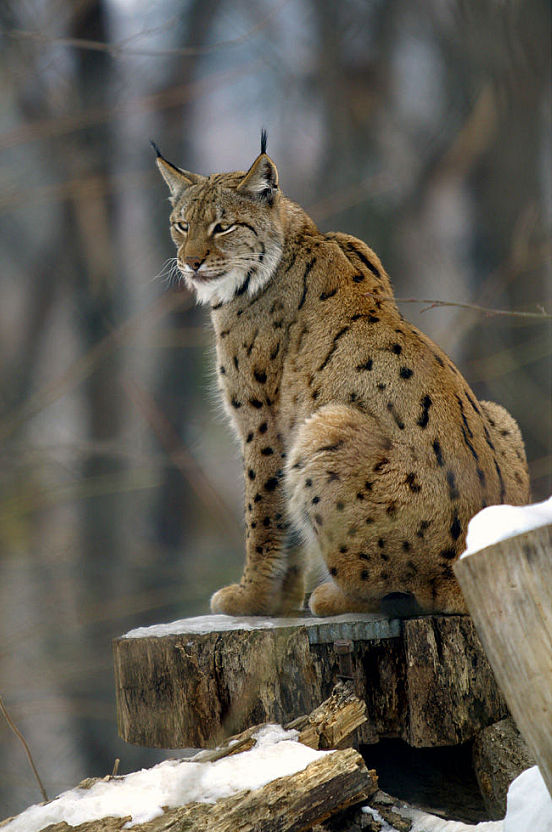Lynx ( Lynx lynx ) are an elusive species that became extinct in Britain 1,300 years ago following human hunting and habitat loss, with the final population holding out in Scotland. Though sparsely populated throughout their northern hemisphere territories, which can span from 20 to 450 km2 depending on habitat and food availability, these apex predators are classified as a species of Least Concern in the regions they still inhabit.
Lynx play a crucial role in the landscape by enforcing an ‘ecology of fear’, causing potential prey species to adapt their behaviours to avoid predation. They primarily feed on herbivores such as deer and rabbits, which prevents overgrazing and allows for the proliferation of saplings and vegetation. This regeneration, in turn, supports a wide array of other plant and animal species.
Reintroducing lynx populations to Britain could also lead to a decrease in small predators like foxes through competition for food, allowing smaller prey species, such as rodents, to thrive. This increase in prey availability can attract other threatened predators, contributing to a more diverse and balanced ecosystem.
These shy and mostly nocturnal felines prefer densely forested areas suitable for ambush hunting and safely raising their young (kittens). They are considered an indicator species, meaning their presence or absence reflects the overall health and integrity of an ecosystem. Therefore, focusing on lynx conservation has positive trickle-down effects on other species.
Currently, there are no wild lynx populations in Britain, and conservationists have faced obstacles due to local concerns over threats to livestock, potential disruption to current ecosystems, and human-wildlife conflict issues more generally. However, attitudes are slowly changing as other countries, such as Germany, Switzerland, and Slovenia, have successfully reintroduced lynx in recent years.

